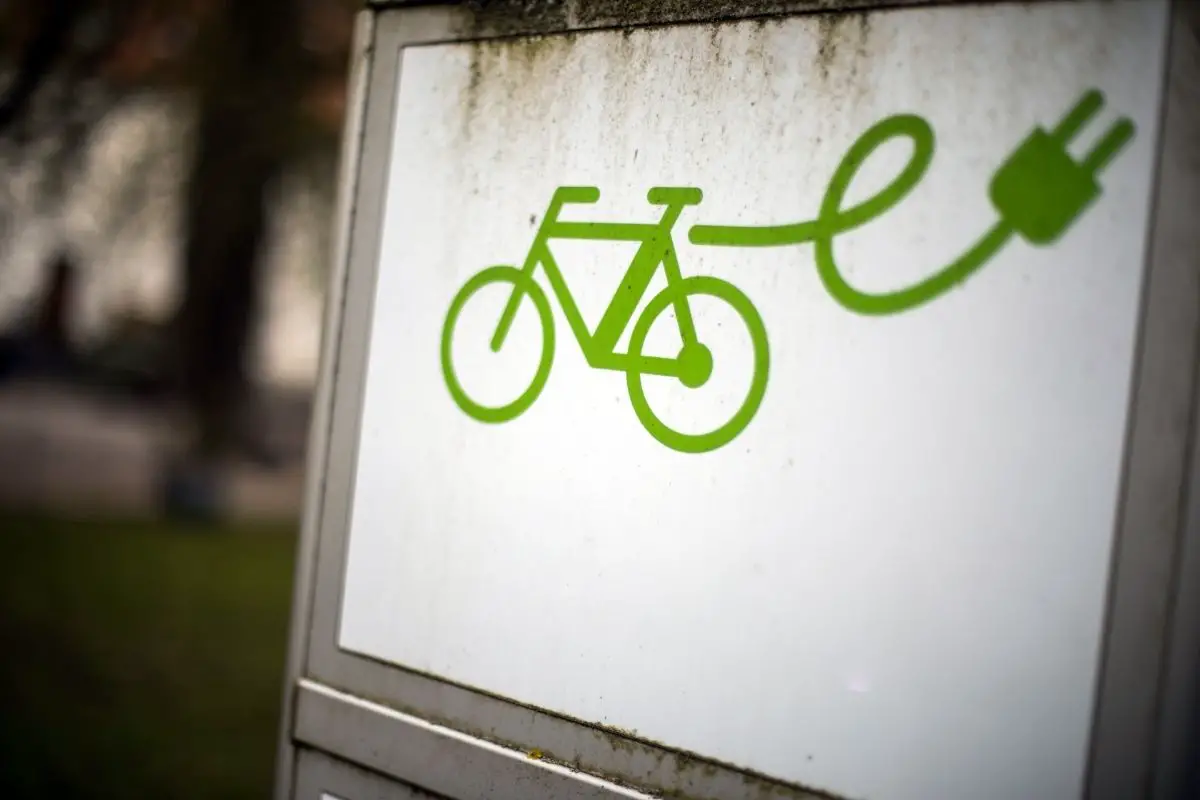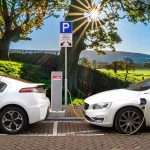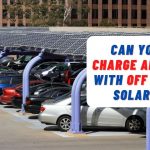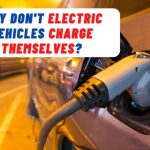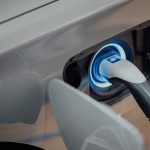Last Updated on August 26, 2022 by
It’s a fact that the invention of electric vehicles (EVs) has truly transformed the automotive industry. However, a major cause of concern with electric vehicles is that they are powered by the electricity that is produced by the burning of fossil fuels.
This is where solar energy-powered EV charging stations come in. In this article, we will tell you everything there is to know about Solar EV chargers, including how you can build one yourself at home.
Portable Solar Charger for EV
A Portable Solar EV charger, which is also known as an off-grid Solar EV charger, is a device that doesn’t need to be connected to a power grid.
This means that it can be placed practically anywhere you want to charge your EV. Portable solar chargers have become very popular in the last few years, largely because of the numerous benefits they offer, like –
- Ease of use
- Electrical independence
- Cost-effectiveness
- Maximizing battery life
- Safety and reliability
Although you can always charge your EVs at public charging stations, it can prove to be very expensive and also inaccessible at times.
Having a device at your disposal that can harness the energy of the sun to power your EV anytime you want is certainly an advantage.
The biggest advantage of using a portable Solar EV charger is that you don’t have to worry about fuelling up the charger. As long as the sun is shining, the charger will be able to successfully power any electric vehicle.
Besides this, they are also great at powering devices in the cleanest and quietest way possible.
Since portable solar chargers are mobile, they can be used on the go to generate power. This is especially useful if you’re planning a long road trip with your EV.
If you are looking for a solar charger for your EV, an off-grid solar charger is the way to go.
Can you buy an off-grid solar EV charger?
With a greater number of people going in for electric vehicles, having reliable solutions for charging EVs has become important.
For many users, getting a permanent EV charging station installed in their homes is not an option. This is where off-grid Solar EV chargers come in.
In an off-grid solar charging setup, the charging station is not connected to the power utilities. Instead, the battery storage system is fed by the solar panel array.
The power stored in the battery storage is then used to fulfil charging needs.
Since this system of charging does not require a grid connection, it means that the off-grid solar chargers can be placed anywhere a user needs. Besides this, they are also very easy to install.
But the question remains – can off-grid Solar EV chargers be bought?
Yes! You can certainly buy an off-grid solar charger for your electric vehicle. While there is an option to make a portable Solar EV charger for yourself, buying it from the market can be an easy-fix solution.
Using a solar EV charger at home
If you own an electric vehicle, a solar EV charger can be a useful home device.
It differs markedly from other charging stations since it does not channel the electricity through a power grid. Solar EV chargers are excellent for use at home since their installation is fairly simple too.
If you are planning to go for an off-grid Solar EV charger, you will have the option of the following two types –
1. Integrated Solar EV Chargers: This portable solar EV charger comes with an inverter that transforms DC energy into AC energy.
The advantage of using the integrated solar EV chargers is that they can divert the surplus power to the charging port of your EV. Another benefit is that integrated chargers usually require no additional wiring or setup besides installation.
2. Separately-Installed Solar EV Chargers: These types of solar EV chargers are an excellent option if you already have a solar power system in your home.
In this, small inversion devices called microinverters are placed under each solar panel, which allows you to operate each solar panel independently. You can also expand the number of microinverters you require to accommodate EV charging.
Which is the best solar EV charger?
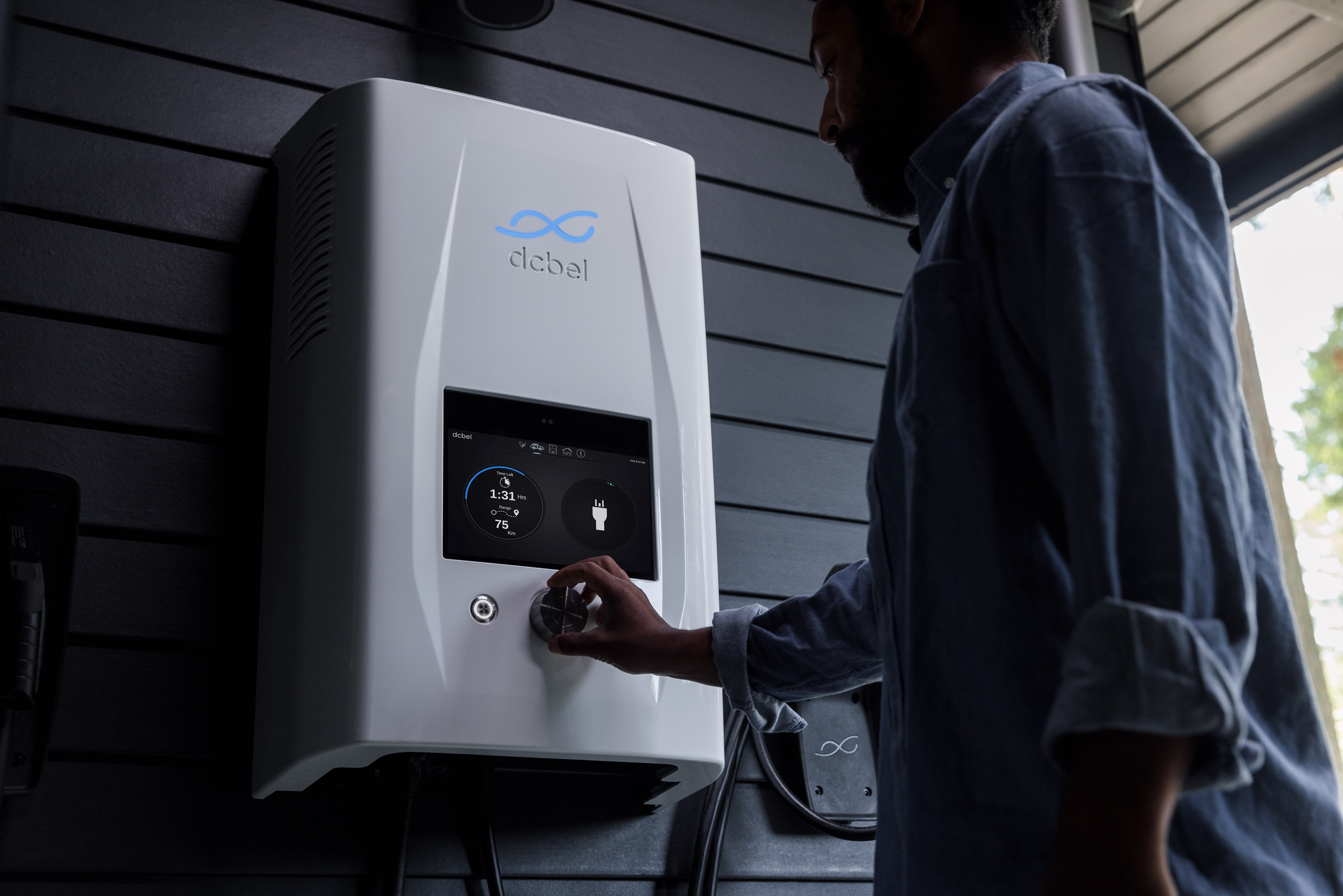
When it comes to choosing the best portable Solar EV charger, it is important to take into consideration the following –
1. Charging Time
Portable Solar EV chargers usually come in 4 levels. The level 1 charger can fully charge your EV in 8-16 hours, while a level 2 charger takes approximately 6-8 hours.
If you take your EV for longer distances, it’s better to go with a level 2 charger, and for shorter distances, a level 1 charger will suffice.
2. Off-Grid Needs
If you require a solar EV charger that is completely off the grid, it is better to go with a separately-installed setup. On the other hand, if you are interested in supplementing the on-grid energy with solar power, an integrated solar charger will be a better option.
3. Installation Method
Consider installing the inverter separately if you want better control over your energy distribution. An integrated solar EV charger should be chosen when you want a streamlined system that will be handled by an installation company.
An integrated solar charger is also great for reducing installation time and saving money in the long term.
Parts Needed for a DIY Solar EV Charging Station
If you are not interested in buying a solar EV charger, you can consider taking the DIY route.
A DIY Solar EV charging station is essentially a self-sustaining, handmade power point for your electric vehicle. Here are the components required for building a DIY Solar EV Charging Station –
- Solar Photovoltaic Panels: These panels are essentially the energy source for the solar EV charging station. If you want to get 10 kWh of energy per day, you would require around 11 solar panels to build your own EV charging station.
- Solar Inverter: This device is used to convert DC energy into clean AC energy. Depending on your setup and preferences, you can choose between three types of inverters – microinverters, hybrid inverters, and string inverters.
- Charge Controller: Since the output of the solar panel fluctuates throughout the day, a charge controller is necessary for regulating the power output. You will usually have a choice between two types of charge controllers – MPPT and PWM.
- Battery: A battery is necessary for storing the PV energy. Although you can go with lead-acid batteries, when it comes to durability, Lithium batteries are better.
- EV Supply Equipment (EVSE): It is important to use proper equipment for charging your EV directly from the solar panels. EVSE consists of all the software and electrical equipment required for charging your EV safely and efficiently.
Solar EV Charging Station Cost
If you are planning to go with the DIY route, the expected material costs for building a solar EV charging station can be around $18,300. Here is the breakup of this cost –
- Solar Panels (11) – $3,300
- Solar Inverter – $1,000
- Battery – $10,000
- Charge Controller – $800
- EVSE – $3,000
- Additional Requirements (Cables, etc) – $200
Don’t forget to include the additional costs for mechanical/structural requirements if you are planning to install the solar panels onto an external area, carport, or on the top of your house.
Besides this, further costs can be incurred if you end up requiring the help of professionals in setup and installation.
Solar EV Charging Station Design Elements
For designing your own Solar EV charging station, you would first have to determine where you want to place the solar panels.
For putting together the solar EV charging station, the following steps should be followed –
1. Mount the solar panels on the area chosen (either temporarily or permanently).
2. Place the batteries in a dry, safe, and temperature-controlled place.
3. Place the solar controller in a place where it is easy to read, and also accessible for wiring and arranging connections.
4. Use serial or parallel wiring to connect the solar panels and controller with the solar power cables, according to your voltage or amperage needs. Do the same with the batteries.
Where to Buy Solar EV Charging Kits?
Buying an electric vehicle can be a great investment, both for yourself and for the environment. However, it is important to rethink how you charge your EV too.
Rather than relying on electricity-powered charging stations, you can instead go for solar-powered alternatives.
There are many companies selling solar EV charging kits these days. Some of the most popular Solar EV chargers are Smappee EV Wall, Anderson A2, Myenergi Zappi V2, and EO Mini PRO-2.
FAQs relating to solar chargers for EV
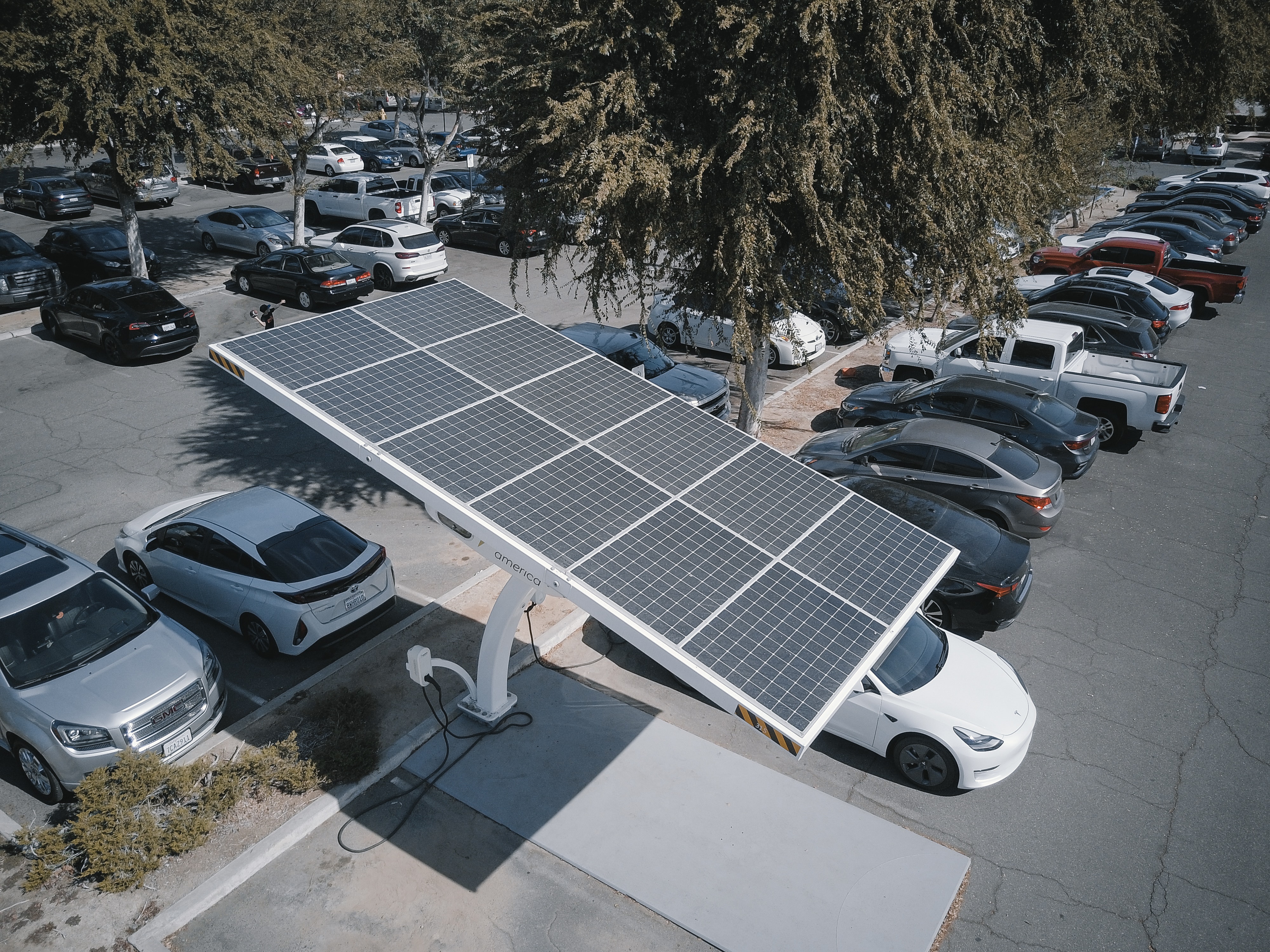
Can I charge my EV with solar panels?
Yes. With a good-quality solar EV charger, you can easily charge your electric vehicle with solar panels. Most solar EV chargers come with charge controllers, which help in regulating the power output.
This means that you can easily and safely charge your electric vehicle with a solar charger.
How many solar panels does it take to charge an EV?
The amount of solar panels you need for building a solar EV charger yourself is largely dependent on your location.
You can determine your requirements from this solar map. For instance, if you need 10 kWh per day for your EV, you would need around 11 solar panels.
How much does a solar EV charger cost?
According to a Solar Reviews study, an on-grid EV charger (for homes) can cost around $662 every year, while a rooftop solar EV charger would cost only $415 every year.
A public EV charger, on the other hand, can increase the annual costs to $1058. It’s amply evident that the solar EV charger is the most cost-effective option.
- Why Electric Vehicles Are Not Popular - January 29, 2023
- How Long Do Tesla Batteries Last Per Day? Battery Facts - January 25, 2023
- Do Electric Vehicles Have Air Conditioning? - December 21, 2022

